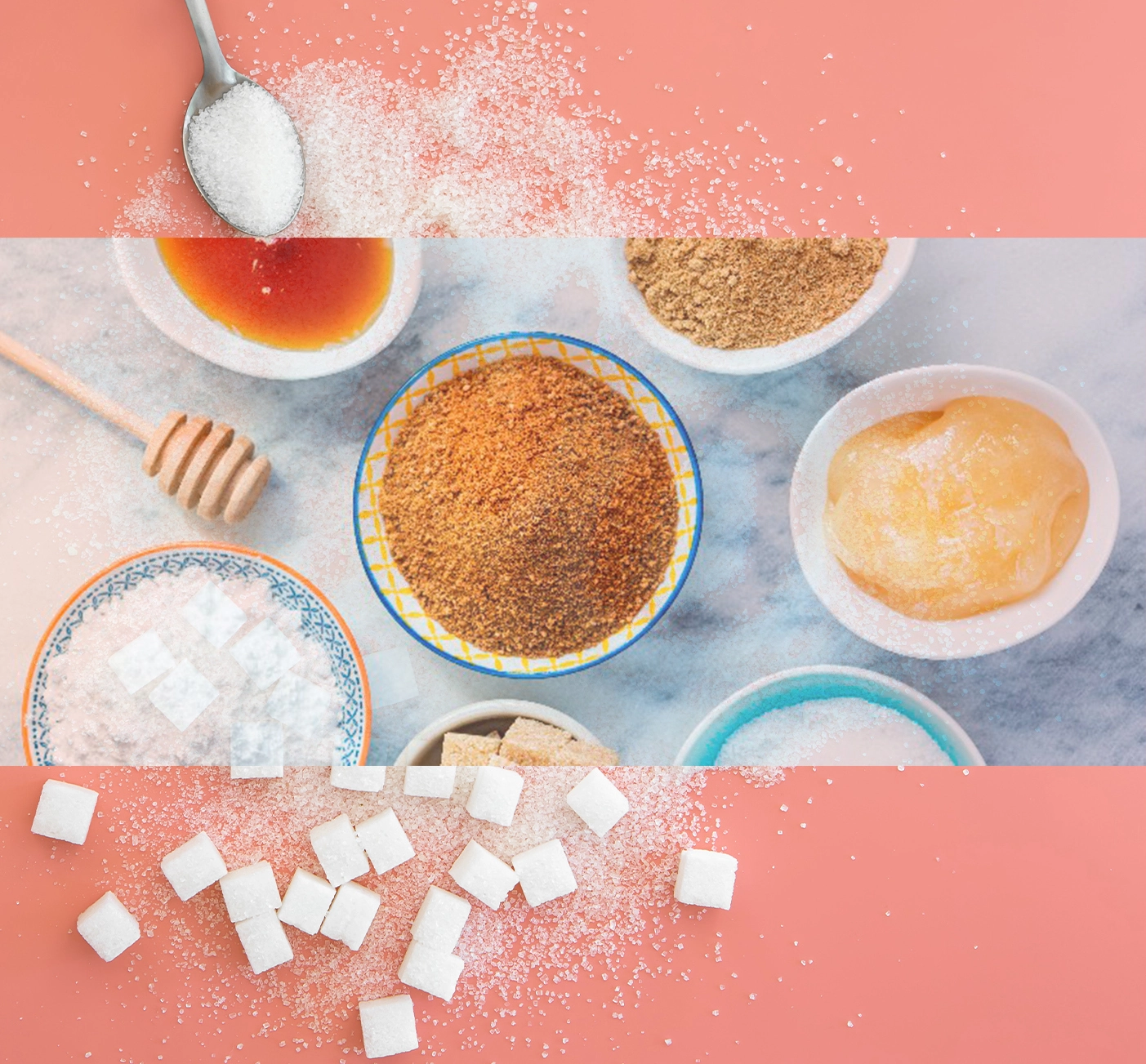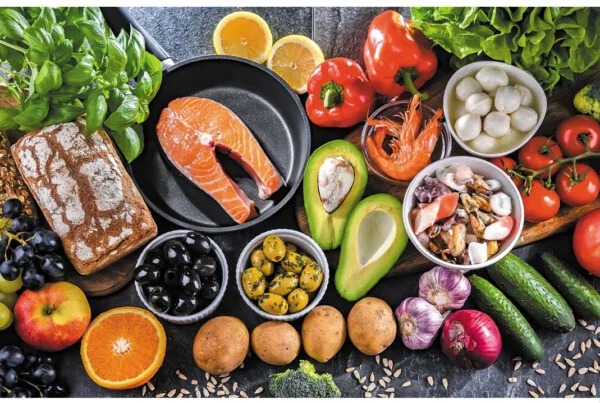Consuming added sugar can contribute to weight gain and increase the risk of serious health issues like diabetes and heart disease. But, what about sweeteners? Are they all safe to use? Let’s take a quick look to understand their potential impact of sugar alternatives.
In the United States, the Food and Drug Administration (FDA) allows the following sugar substitutes to be used:1
- Acesulfame potassium (Sweet One, Sunett)
- Advantame
- Aspartame (NutraSweet, Equal)
- Neotame (Newtame)
- Saccharin (Sweet’N Low)
- Sucralose (Splenda)
- Luo han guo (Monk Fruit in the Raw)
- Purified stevia leaf extracts (Truvia, PureVia, others)
Artificial sweeteners offer the sweetness of sugar without the calories, which can be helpful for people who need to avoid sugar, such as diabetics. However, there is ongoing debate among scientists about the potential links between artificial sweeteners and various health issues, including lymphomas, leukemias, bladder and brain cancers, chronic fatigue syndrome, Parkinson’s disease, Alzheimer’s disease, multiple sclerosis, autism, and systemic lupus.2
This study 3 evaluated the mutagenicity and genotoxic potential of three low-calorie sweeteners: aspartame, acesulfame-K, and saccharin. The results showed that these sweeteners caused DNA strand breaks and percent DNA in the tail. Acesulfame-K and saccharin caused more DNA damage than aspartame. These findings suggest a potential health risk from exposure to these sweeteners.
What about Stevia?
Stevia products often include sugar alcohols or other additives, so it’s important to check the labels carefully. Baking with stevia can be challenging because its different chemical composition from sugar means it won’t provide the same texture to pastries.
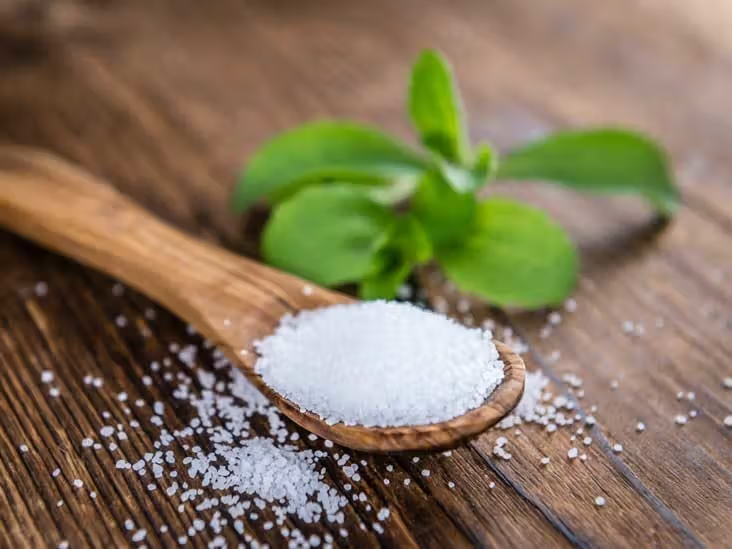
.
Natural sweeteners like honey, agave syrup, date syrup, and fruits provide alternatives to artificial sweeteners!
.
Honey
Honey is rich in antioxidants and can offer some health benefits when used in moderation.
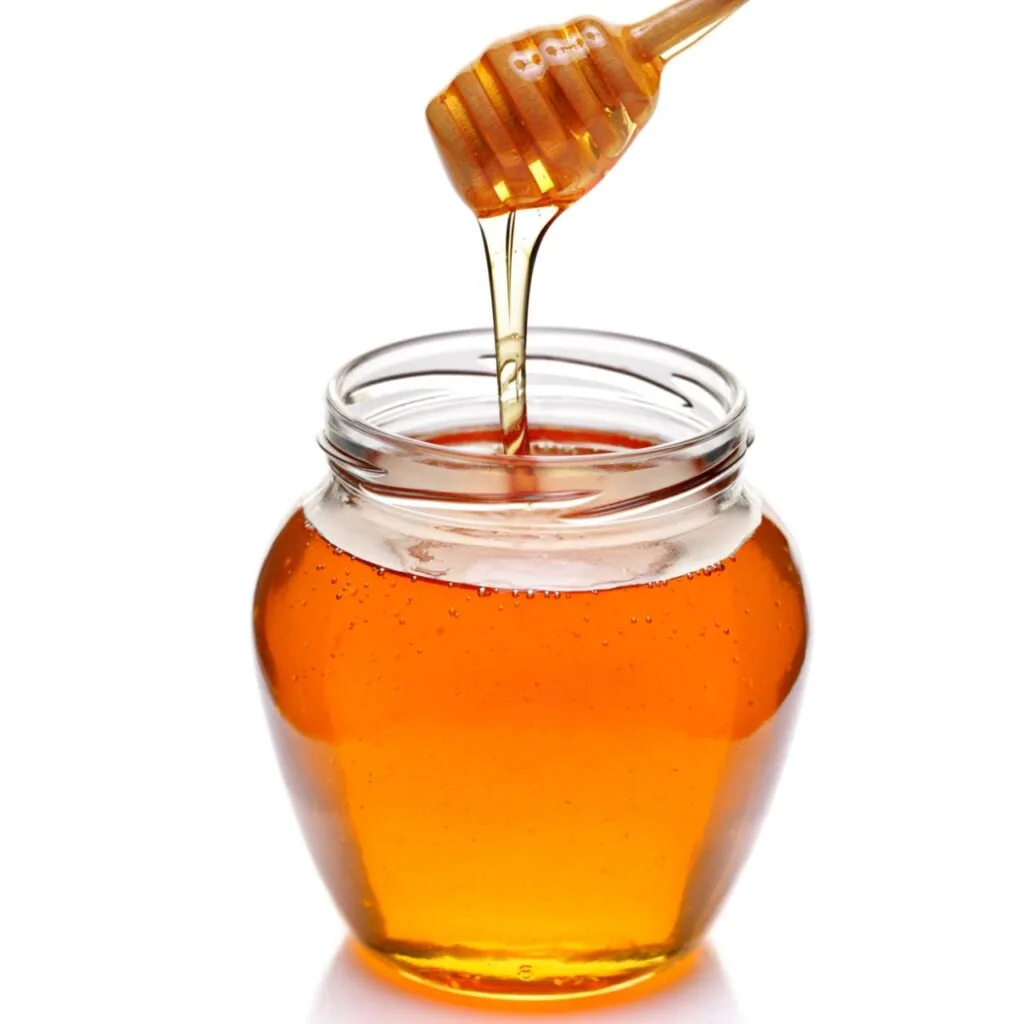
Cooking with honey is possible, but it’s important to be mindful of its properties. When honey is heated above 140°F (60°C), it can lose some of its beneficial enzymes and nutrients. Additionally, heating honey to high temperatures (above 160°F or 71°C) can cause it to produce a compound called hydroxymethylfurfural (HMF), which can be harmful in large amounts.
So, DO NOT add honey to boiling water right away. Wait for the water to cool down a bit before adding honey.
Tips for cooking with honey:
- Low-Temperature Cooking: Use honey in recipes that require low-temperature cooking, such as baking at temperatures below 350°F (175°C).
- Add at the End: If possible, add honey toward the end of the cooking process to preserve its beneficial properties.
Agave syrup
Also known as agave nectar, is a natural sweetener derived from the agave plant. It has a mild flavor and is sweeter than sugar, so you can use less of it to achieve the same level of sweetness. Agave syrup has a lower glycemic index compared to sugar, making it a better option for those managing blood sugar levels.

Agave syrup is generally more heat-stable than honey, but it’s still best to avoid high temperatures when using it. Heating agave syrup at very high temperatures for prolonged periods can cause some caramelization and degradation of its natural properties. However, it doesn’t produce harmful compounds like hydroxymethylfurfural (HMF) as honey does.
Tips
- Adjust to Taste: Since agave syrup is sweeter than sugar, start with a small amount and adjust to taste.
- Mix Well: Ensure it is well mixed into whatever you’re preparing, as it can sometimes settle or separate.
- Store Properly: Keep agave syrup in a cool, dark place. It doesn’t need refrigeration and has a long shelf life.
Fruits
Fruits not only add natural sweetness but also come packed with essential vitamins, fiber, and minerals. Using sweet fruits as natural sweeteners is a fantastic way to add sweetness to your dishes while also benefiting from the nutrients and fiber they offer.
Date syrup
It’s made from dates, a nutrient-dense sweetener rich in iron, potassium, and magnesium. Date syrup is high in fiber. With its mineral content, date syrup also supports heart and muscle health.
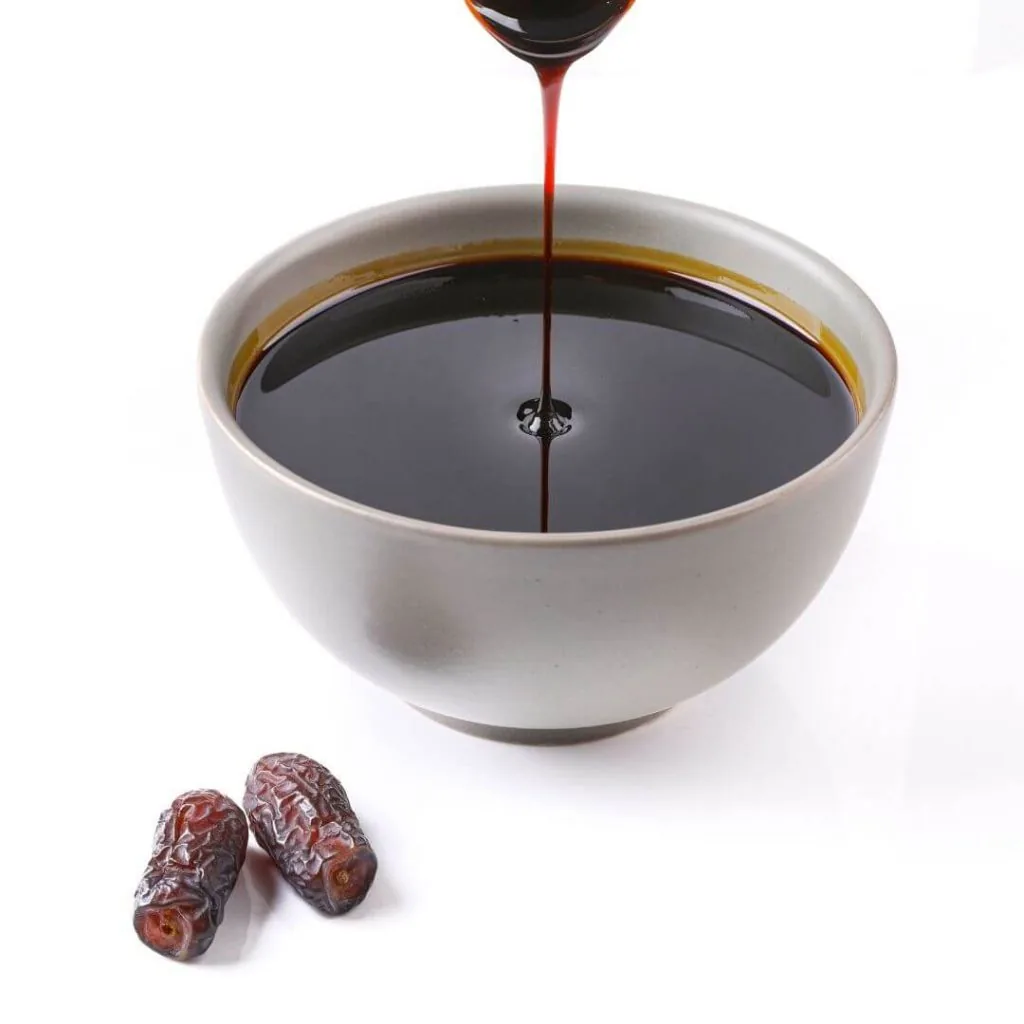
Good news! Date syrup can be cooked without having harmful compounds released. This option sounds safer to bake, huh? Yay!
What do I do to curb my sweet cravings?
My favorite is using a ripe banana, cocoa powder and 1 teaspoon of peanut butter. You can always add some quick oat and turn this mixture into healthy cookies by baking them.
Another favorite combination of mine is cinnamon with apples or pears. Simply cook the fruit, that you prefer, with coconut oil, and sprinkle on some cinnamon powder. It’s like enjoying a bite of apple pie.
All these natural options can enhance your diet while potentially offering additional health benefits!
Thank you for reading.
Keep it healthy,
Busé
- www.mayoclinic.org/healthy-lifestyle/nutrition-and-healthy-eating/in-depth/artificial-sweeteners/art-20046936 ↩︎
- Whitehouse CR, Boullata J, McCauley LA. The potential toxicity of artificial sweeteners. AAOHN J. 2008;56(6):251-261. doi:10.3928/08910162-20080601-02 ↩︎
- Bandyopadhyay A, Ghoshal S, Mukherjee A. Genotoxicity testing of low-calorie sweeteners: aspartame, acesulfame-K, and saccharin. Drug Chem Toxicol. 2008;31(4):447-57. doi: 10.1080/01480540802390270. PMID: 18850355. ↩︎
